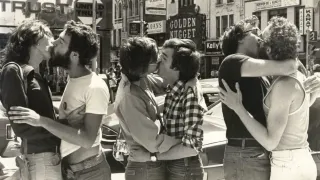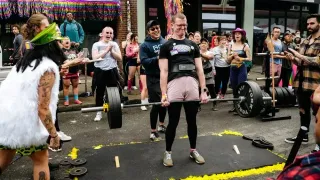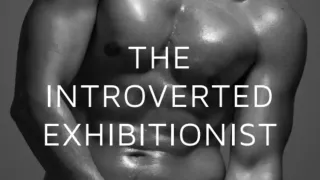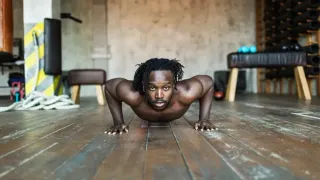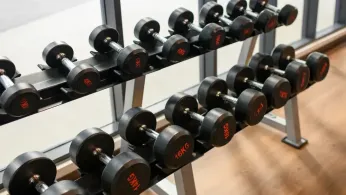
5 hours ago
Gold’s Gym Locker Room Clash: When Trans Rights and Public Spaces Collide
READ TIME: 3 MIN.
What does it mean to feel safe, seen, and respected in a space as intimate as a gym locker room? That question became national news last week, as Gold’s Gym in Los Angeles found itself in the eye of a cultural storm. The catalyst: a widely-shared video showing singer-songwriter Tish Hyman embroiled in a confrontation with transgender woman Alexis Black, which has since sparked passionate debate about trans inclusion, privacy, and the meaning of public accommodation in 2025 .
The spark for the controversy came when Hyman, a frequent Gold’s Gym attendee, posted a video of herself confronting Black in the women’s locker room. Hyman claimed she had previously complained to gym management on four occasions about Black using the women’s facilities, but felt those concerns were repeatedly dismissed .
In the video, Hyman’s frustration is palpable. She later wrote that a young woman present during the incident was “completely traumatized,” and thanked Hyman for her intervention. However, for many LGBTQ+ viewers, the video’s one-sided nature—and the lack of context for Black’s experience—raised urgent questions about whose safety, dignity, and privacy are being prioritized .
In the days following the incident, Alexis Black, identified by TMZ, broke her silence in a televised interview. Black, who is in the process of transitioning and has changed her legal gender marker and name, asserted her right to use the women’s locker room. “You’re not going to put a trans woman with a trans man just because we’re trans,” Black told TMZ Live. “That seems like a whole new envelope of discrimination” .
Black explained that she has been on hormone therapy since February, is registered as female on her driver’s license, and is “not comfortable” with the idea of trans-only spaces. “I’m just trying to live my life and work out like everyone else,” she said, highlighting the emotional labor and scrutiny trans people often endure in public spaces
For LGBTQ+ communities, the story is achingly familiar. The fight for access to bathrooms, locker rooms, and changing spaces—places where bodies and boundaries intersect—is not just about physical comfort, but about the fundamental right to exist authentically in public. Across the U.S., state legislatures have advanced a record number of anti-trans bills targeting sports, healthcare, and public facilities, fueling anxiety and further marginalizing transgender people .
Transgender people, especially trans women of color, continue to face disproportionate harassment, violence, and exclusion in spaces that many cisgender people take for granted . As Black’s story ricochets across social media, many queer and trans advocates are highlighting the emotional toll of being policed, questioned, or forcibly outed in such vulnerable moments.
The Gold’s Gym incident exposes the gap between policy and lived reality. While many gyms and fitness centers have updated their policies to accommodate all members according to their gender identity, the on-the-ground experience can be fraught with misunderstanding, fear, or outright hostility .
As Black told TMZ, “I don’t want to make anybody uncomfortable, but I also can’t erase who I am. I have just as much right to be here as anyone else” .
For many in the LGBTQ+ community, the episode is a call to action—not just for legal protections, but for genuine cultural change. “Trans people are not a threat,” tweeted one advocate. “We’re just people—trying to sweat, shower, and survive, like everyone else” .
In the aftermath, the queer community has responded with a mix of outrage, support, and creative resistance. LGBTQ+-focused gyms and fitness collectives are on the rise, carving out spaces where trans and nonbinary people can move their bodies without fear of judgment or harassment .
Social media, too, has become a platform for solidarity: hashtags like #TransRightsAreHumanRights and #LetTransPeopleLive trended in the wake of the Gold’s Gym incident, as queer influencers and allies called for more inclusive policies and better training for staff .
As one viral post put it, “The real workout is dismantling the systems that try to keep us out.” For LGBTQ+ people, the Gold’s Gym controversy is a painful reminder—and a powerful prompt—to keep pushing for spaces that honor every body, every story, and every right to belong.
As Gold’s Gym faces scrutiny over its handling of the incident, advocates are demanding not just apologies or policy tweaks, but a deeper reckoning with what inclusion actually means. For some, that could mean better staff education and clear signage; for others, it’s about ensuring that trans voices are centered in any conversation about safety and access .
Above all, the lesson is clear: when queer and trans people speak out about their needs, it’s not just a “controversy”—it’s a call for a more just, joyful public life. And for anyone who’s ever felt out of place in a locker room, this moment is a mirror—reflecting the work we still have to do, together.
